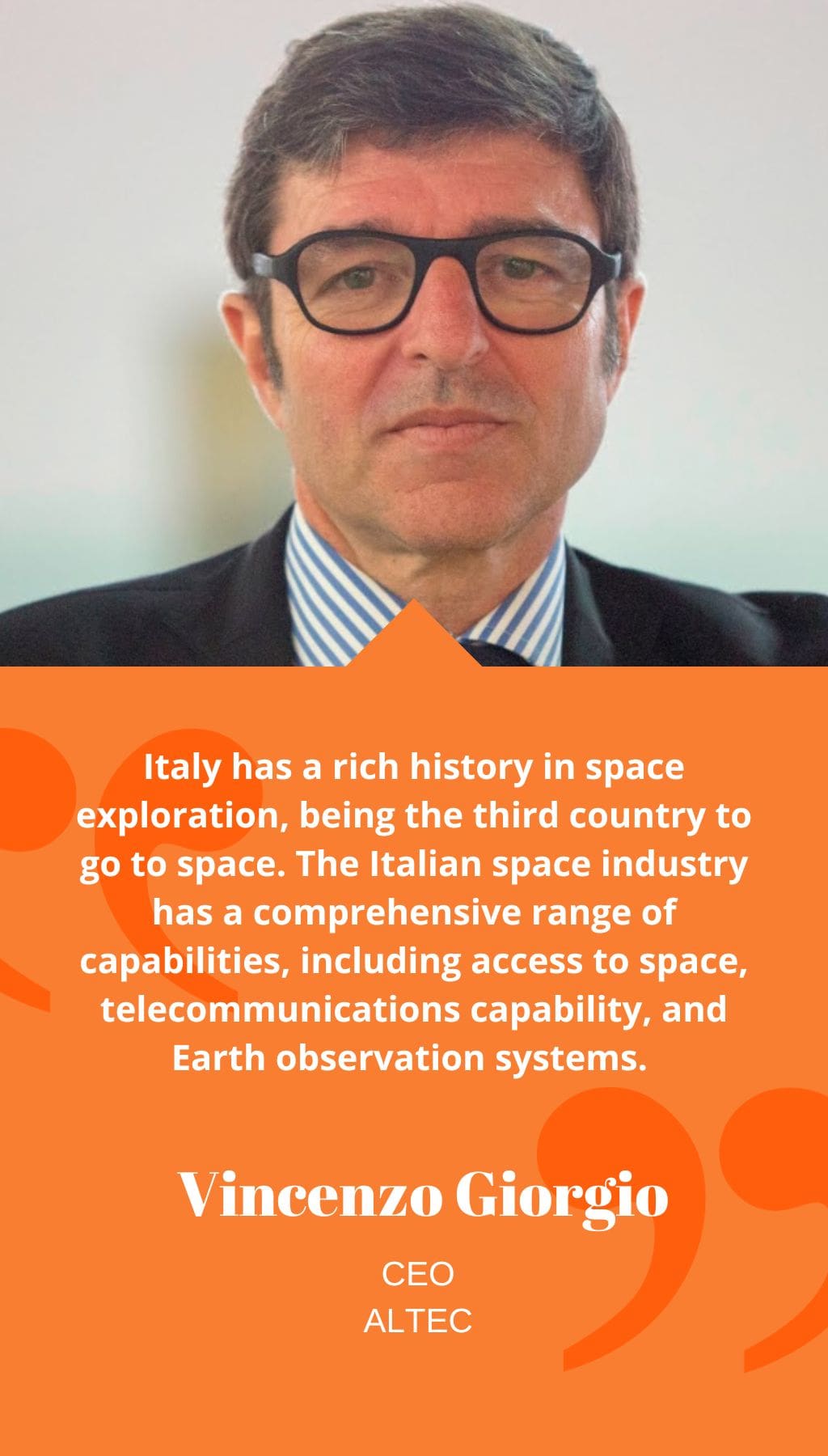
- Italy | 24 July 2018

Can you provide an overview of the main services offered by ALTEC and shed more light on some of the key programs that ALTEC is involved in?
ALTEC has three main focus areas: exploration, scientific activity, and the concept of the new space economy, which is beginning to take shape. When it comes to exploration, we work closely with our stakeholders, the Italian Space Agency and Thales Alenia Space (TAS-I). TAS-I is primarily involved in low orbit explorations and the International Space Station (ISS), for which they have manufactured over half of the pressurized volume. ALTEC, on the other hand, focuses on operation management, providing engineering competencies to maintain infrastructure, analyze possible outcomes, and handle logistics, including equipment replacement and making changes as needed. We also support astronauts in their experiments in space and collaborate with a team of scientists to better understand the effects of physiological stress on the human body in space. Our activities also encompass medicine and biology research at the ISS.
How does ALTEC contribute to the ISS project, and what is the nature of its relationship with other organizations involved?
As part of the ISS project, ALTEC provides support in operations, maintenance, and logistics. We have a control center located in Turin that is permanently connected to the space station, and we are also connected with the Johnson Space Center in Houston. We analyze the needs of the ISS and proactively work to provide the necessary support. In addition, we are involved in crew training, as we provide most of the instructors for the European Astronauts Center (EAC) at the ESA center. Our instructors teach astronauts what they need to do and when, ensuring they are prepared for their missions.
Could you elaborate on the Mars project and the role of ALTEC in it?
Europe is currently engaged in a Mars exploration program called ExoMars, which consists of two missions. The first mission was launched in March 2016 and landed on Mars on October 19th, 2016. Italy plays a key role in this Mars exploration mission, being responsible for more than one third of the activity. Thales Alenia Space leads the program as the prime contractor. The second mission involves a rover that will land on Mars at a later date to search for present or past life for the first time ever. The operation center and scientists will be based at ALTEC in Turin. Due to the communication delay with Mars, we have to rely on an autonomous system for the rover, as real-time control is not possible. Our solution involves the rover moving between two points without human control, avoiding obstacles, until it reaches the designated point. We will then drill down two meters below ground level to take samples and search for past or present life. Samples will be processed and analyzed by the rover, and the results will be transmitted via the orbiting satellite from the first mission. At ALTEC, we will analyze the transmitted data and make it accessible to the scientists.
How does the development of the Italian space industry, which is the seventh largest in the world, compare to other jurisdictions globally?
Italy has a rich history in space exploration, being the third country to go to space. The Italian space industry has a comprehensive range of capabilities, including access to space, telecommunications capability, and Earth observation systems. Italy boasts all the necessary building blocks for space activity, both in the broader industry and in small and medium-sized enterprises (SMEs), which is a favorable mix.














